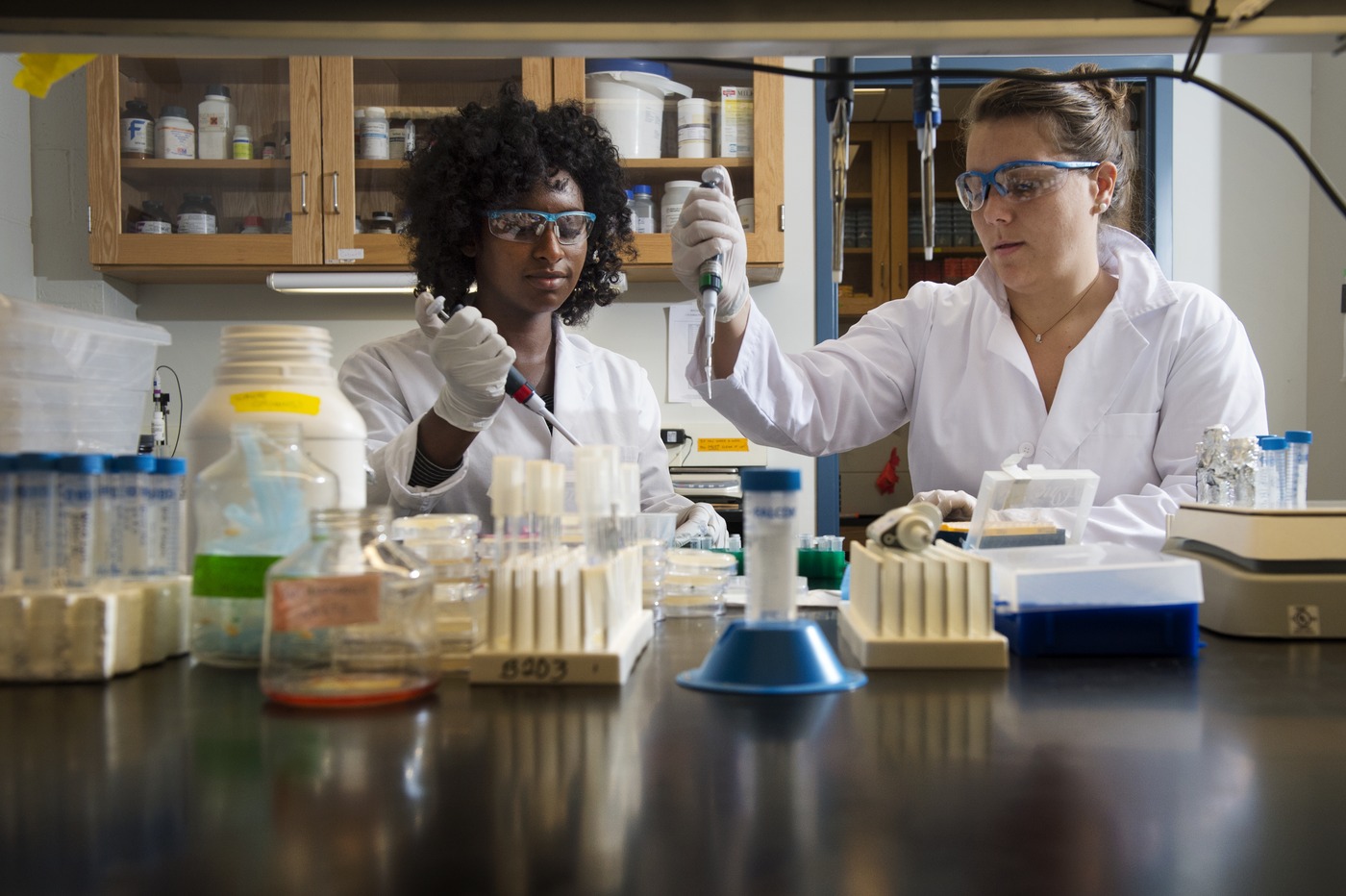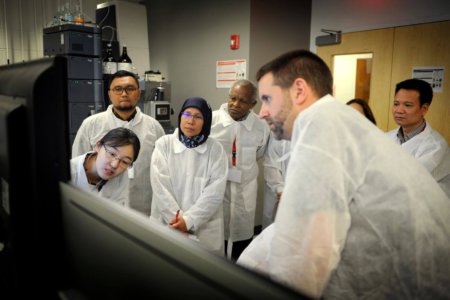There are countless reasons why the brightest and the most ambitious specialise in the sciences. To start, this is a domain that is anything but static. In fact, it’s incredibly fluid thanks to technological advancements continuously — and rapidly — adding more to what we already know. However, to truly prepare to join the field, an exploratory academic journey is needed — specifically the kind provided at the Northeastern University College of Science.
The College of Science uses an industry-focused approach to deliver quality, graduate-level knowledge in fields such as bioinformatics, biotechnology, chemistry, nanoscience, and marine and environmental science.

Source: Northeastern University
This integration of real-world experience with education, research, and innovation prepares students for future career opportunities — well before they’ve even graduated.
Troy Langknecht chose the Master of Science in Environmental Science and Policy not just because it was a rare subject combination in academia, but because of the level of freedom it came with as well. “I worked full-time in Rhode Island through most of my graduate program, so it was important for scheduling to be flexible,” she says. “I was also allowed to tailor my courses to fill in gaps based on my previous experiences.”
Jointly offered by the College of Science and the College of Social Sciences and Humanities’ School of Public Policy and Urban Affairs, the program is truly interdisciplinary. To develop a new generation of versatile environmental professionals, the 36-credit qualification draws from various areas of study.
Every student takes nine classes across three semesters. Additionally, they take on two required seminar classes, two skills classes, and two department-based electives. Then, they progress to further tailoring their journey by choosing three interdisciplinary courses from any college at Northeastern.
This structure was designed to let students expand their horizons in environmental science and policy, while still having control over how their newfound knowledge will be applied in their future careers.
“The aspects of the ES&P program students like the most are its flexibility and customizability,” says program director and associate teaching professor Benjamin Dittbrenner. “Students work with a faculty advisor to design a program plan that reflects their interests and cultivates their intended career path. Students have the option of over 100 graduate classes to choose from, and opportunities to interact and do research with faculty in various disciplines.”
Langknecht, a graduate who still reminisces about her Techniques for Policy Analysis classes with joy, is currently working at a US government agency researching microplastics in marine environments.
Greg Coppola, a fellow Master of Science in Environmental Science and Policy graduate, is currently working as a project manager in the energy field. “We install solar panels on buildings for clients who would not be able to afford the attachments,” he explains. “I hope to continue working in this sector to alleviate the hardships of vulnerable groups in our fight against climate change.”
Coppola credits his professional success to Professor Joan Fitzgerald, who did far more than teach a compelling course in Cities, Sustainability, and Climate Change. She was also responsible for giving Coppola the chance to make a name for himself as a professional well before graduating. “During my third semester, I emailed Joan to inquire about any potential opportunities to boost my resume as a student,” he recalls.

Source: Northeastern University
“Within two weeks of my initial email, she reached out to a New York State Energy Research and Development Authority connection about potential internship opportunities. Her connection and recommendation opened the door to an amazing year-long paid internship.”
Current student Hannah Crawford is co-oping with her “dream organisation,” and already feels like her career prospects have significantly improved from her time in the program. “The projects I’m working on are diverse in skill, from writing grants, educational documents, literature reviews, and outreach letters, to using GIS and doing site visits to potential project locations,” she says.
Such insights and opportunities were precisely why she chose the Master of Science in Environmental Science and Policy program. Crawford, an aspiring changemaker, had no interest in taking the traditional route with a thesis. Instead, she wanted to have hands-on experiences and face-to-face interaction with professionals innovating climate change solutions — which is exactly what she’s doing today.
To join her and turn your interests into a career, you’ll need challenging academics and eye-opening professional experiences — a powerful combination Northeastern University is well-known for providing. Click here to apply today.
Follow Northeastern University on Facebook, Instagram, Twitter, YouTube, and LinkedIn.













